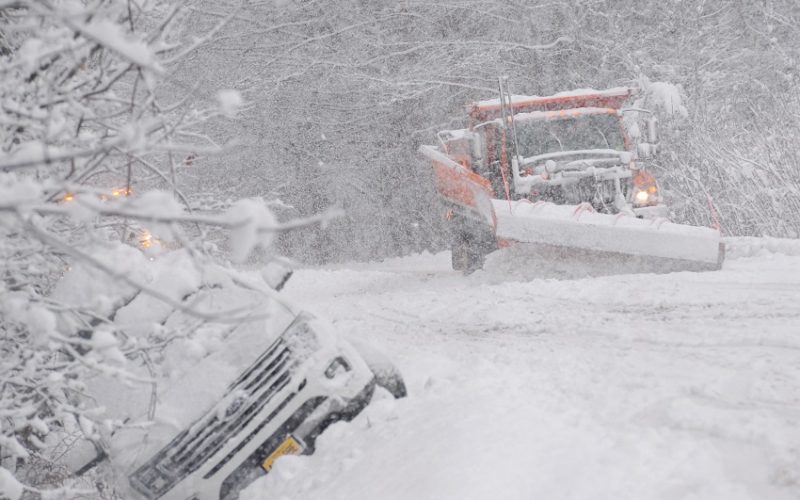Richmond, VA – Central Virginia residents are preparing for a significant shift in weather conditions this weekend and early next week, as an arctic front is set to move through the region, bringing a mix of rain, snow, and dangerously cold temperatures.
The weather pattern will begin to change on Saturday, January 18, when a weak system moves in from the southwest, bringing clouds and the potential for a few scattered showers. High temperatures are expected to reach the middle to upper 40s, offering a brief respite before the much colder air arrives.
Late Saturday night into Sunday morning, an arctic cold front will push through the area. However, the coldest air won’t arrive immediately. As the front advances, moisture from a developing weather system in the Carolinas will move up Interstate 85 toward the I-95 corridor, bringing rain to Central Virginia by late morning on Sunday, January 19. As the arctic air finally catches up, temperatures will drop, and the rain could transition to snow in some areas. Forecast models suggest there’s a potential for a few inches of snow, particularly west of I-95, but timing remains a crucial factor. If the moisture lingers as the cold air settles in, snowfall could accumulate, while if the timing is off, only flurries or light snow showers may occur.
Following the snow event, Central Virginia will experience a significant temperature plunge. By Monday, January 20, the region will face some of the coldest temperatures in years. Daytime highs will be 20 to 25 degrees below normal, with single-digit lows expected at night through at least Wednesday, January 22. These frigid temperatures could create hazardous conditions, including frozen pipes, which are a particular concern in homes that are not properly winterized.
To prevent pipe bursts, experts recommend keeping faucets dripping slightly overnight and throughout the day, as this helps maintain water flow through pipes that might otherwise freeze. Additionally, opening cabinet doors under sinks will allow warmer air from inside the home to circulate around pipes, offering extra protection. Homeowners should also be aware of where their main water shutoff valve is located in case of an emergency.
The extreme cold also poses risks for local bodies of water, with ponds, reservoirs, and lakes likely to freeze. Caution is advised near these areas, as ice may not always be thick enough to support weight.
With a rare combination of snow and extreme cold on the horizon, Central Virginia residents are being urged to prepare for a challenging weather event. Meteorologists will continue to monitor the situation as it develops, offering updates as needed to keep the public informed.











